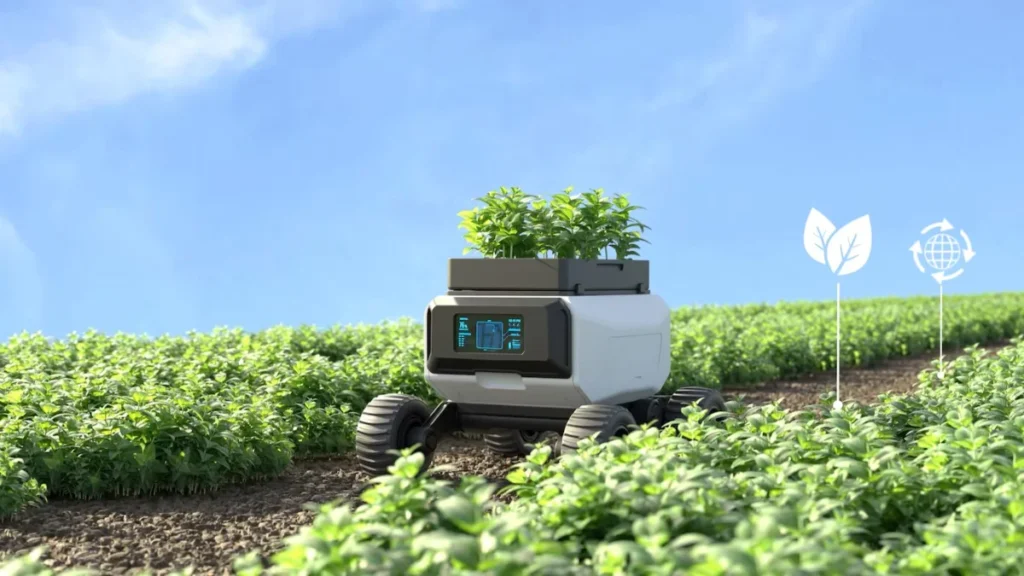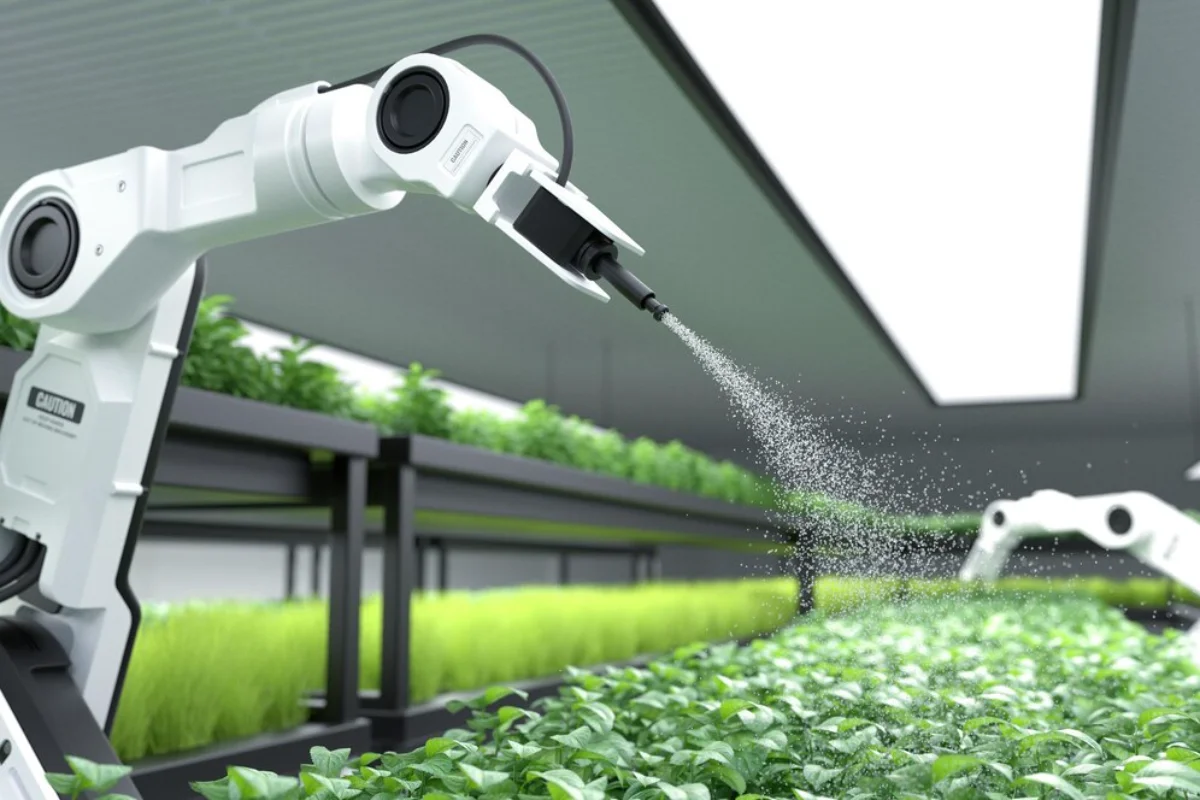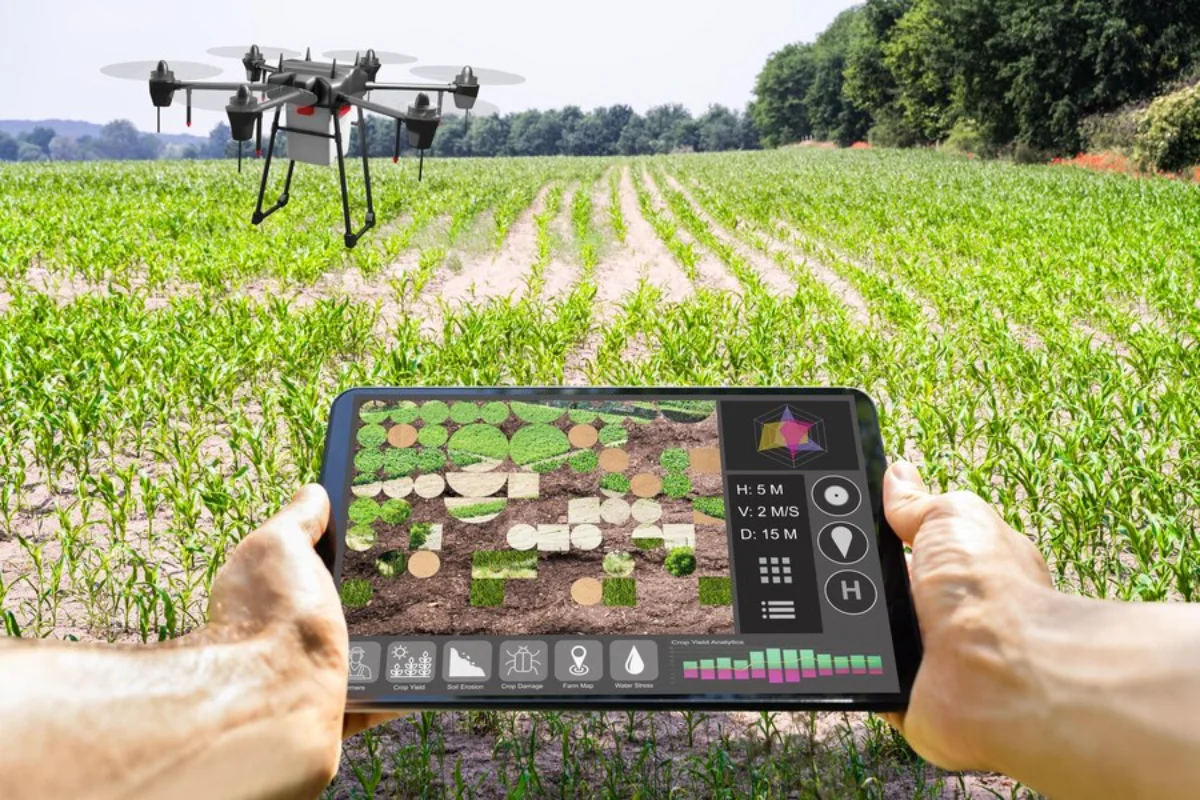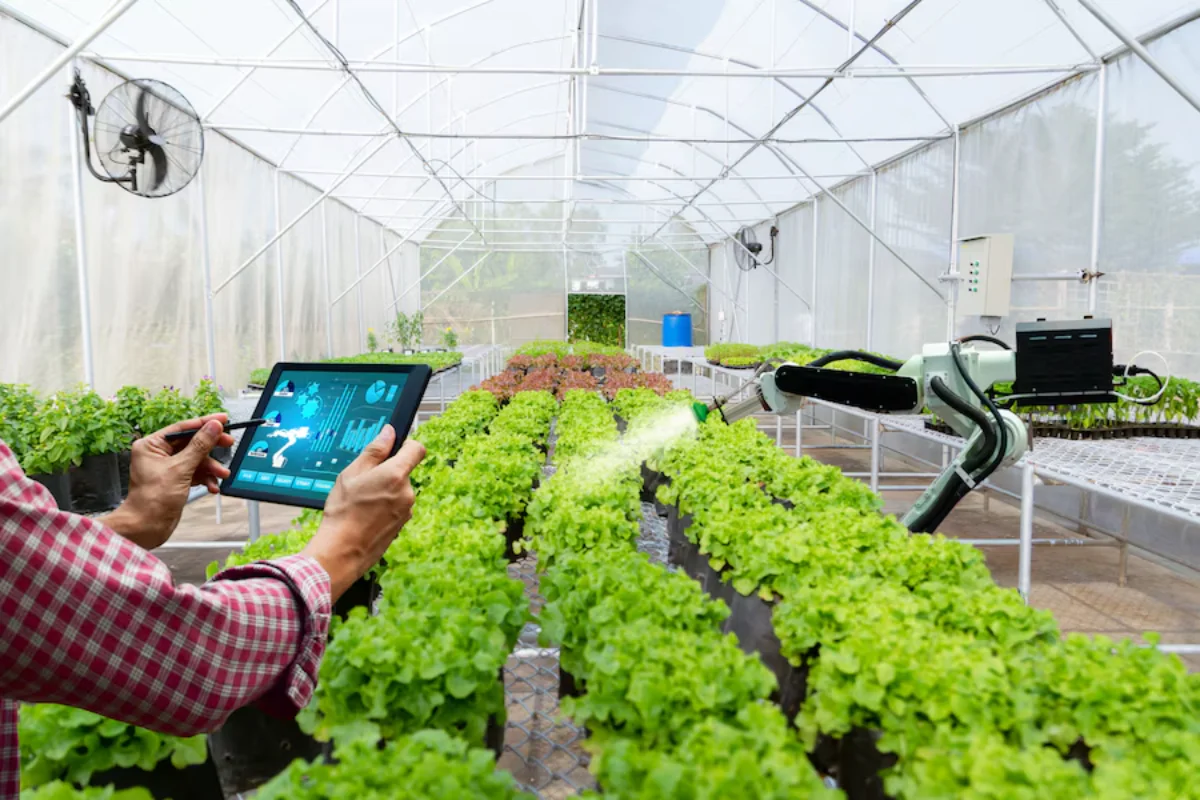The Technology Blog

AI in Agriculture: Precision Farming & Sustainability
Agriculture is at the core of human civilisation, and with a rapidly growing global population, the demand for food production is higher than ever. Traditional farming methods, while effective for centuries, are struggling to keep up with modern challenges like climate change, soil degradation, and resource scarcity.
Enter AI in agriculture—a revolutionary technology that is transforming farming into a high-tech, efficient, and sustainable industry. Precision farming tech and agri-tech AI are helping farmers maximise crop yields, reduce waste, and improve sustainability. But how exactly is AI reshaping agriculture? Let’s explore.

The Role of AI in Agriculture
Artificial Intelligence is playing a crucial role in automating and optimising farming operations. AI-driven solutions are enhancing productivity through:
Smart Crop Monitoring – AI analyses soil health, weather patterns, and crop conditions. Automated Machinery – AI-powered robots assist with planting, harvesting, and irrigation. Pest & Disease Detection – AI identifies crop diseases early, minimising losses. Data-Driven Decision-Making – AI processes vast amounts of agricultural data to improve farm management.
These innovations are driving precision farming tech, allowing farmers to produce more with fewer resources, making agriculture more sustainable.

Precision Farming Tech: How AI is Enhancing Efficiency
Precision farming tech leverages AI, IoT, and data analytics to create a more controlled and scientific approach to agriculture. Here’s how it works:
1. AI-Powered Soil & Crop Monitoring
AI sensors collect real-time data on:
- Soil moisture levels – Helps optimise irrigation and prevent water wastage.
- Nutrient content – AI recommends the right fertilisers, reducing overuse.
- Crop health analysis – AI drones capture images to detect diseases early.
Example: Companies like Taranis and PEAT use AI to scan crops for early disease detection, reducing pesticide use.
2. AI-Driven Predictive Analytics for Weather & Yield Forecasting
Climate change makes farming unpredictable. AI-powered predictive models analysis:
- Historical weather patterns – Helping farmers prepare for droughts or floods.
- Market demand forecasts – Enabling better crop planning.
- Yield predictions – Allowing farmers to maximise output while reducing waste.
Example: The IBM Watson Decision Platform for Agriculture uses AI to help farmers plan crop cycles based on weather conditions.
3. AI-Based Automated Irrigation & Water Management
Water scarcity is a major concern in agriculture. Agri-tech AI helps conserve water through:
- AI-powered smart irrigation systems that water crops only when necessary.
- Drought-resistant farming techniques powered by AI-driven research.
- Automated water pumps that adjust based on soil moisture readings.
Example: Netafim’s AI irrigation systems reduce water consumption by up to 30% while improving crop yield.
4. AI in Precision Pest & Weed Control
AI-powered drones and robots are changing the way farmers handle pests and weeds.
- AI image recognition detects harmful pests early.
- AI-driven robots remove weeds without chemicals, reducing herbicide dependency.
- Automated pesticide spraying targets only infected areas, minimising environmental damage.
Example: Blue River Technology (a John Deere company) developed See & Spray AI, which identifies and targets individual weeds to reduce chemical use.
5. AI-Powered Autonomous Machinery & Robotics
Farmers are increasingly using AI-driven autonomous tractors, harvesters, and drones to improve efficiency.
- Self-driving tractors reduce labour costs.
- AI-powered harvesters ensure faster and more precise crop collection.
- Drones for crop monitoring provide real-time insights for better decision-making.
Example: CNH Industrial has developed AI-powered autonomous tractors that can plant and harvest crops without human intervention.

The Impact of AI in Sustainable Agriculture
Sustainability is a major goal in modern farming, and AI in agriculture is leading the way by:
Reducing Water Waste – AI-driven irrigation ensures water is only used when needed. Minimising Chemical Use – AI enables targeted pest control, reducing environmental pollution. Lowering Carbon Footprint – AI-driven machinery is more energy-efficient than traditional farming equipment. Preventing Food Waste – AI helps harvest crops at optimal times, reducing spoilage.
By making farming more resource-efficient, AI is helping combat climate change while increasing food security.
Challenges in AI-Driven Agriculture
While AI in agriculture offers enormous potential, there are challenges that must be addressed:
1. High Implementation Costs
AI-powered precision farming tech requires: Advanced sensors AI-driven machinery Data analytics platforms
For small-scale farmers, these costs can be prohibitive.
2. Data Privacy & Security Risks
With AI collecting vast amounts of agricultural data, concerns arise over: Who owns the data? How is it being used? What are the risks of hacking?
3. AI Learning Curve & Adoption Issues
Many farmers lack training in agri-tech AI, making widespread adoption challenging.
4. Dependence on Connectivity & Infrastructure
AI systems require high-speed internet and cloud computing, which can be difficult in rural areas.
Solution? Governments and tech companies are working to increase AI accessibility by developing cost-effective solutions.
The Future of AI in Agriculture: What’s Next?
The future of AI in agriculture is bright, with several trends shaping the industry:
1. AI-Powered Smart Farms
Fully autonomous farms will use AI-driven machinery for every step, from planting to harvesting.
2. AI & Vertical Farming
AI will optimise indoor farming by monitoring temperature, humidity, and light for higher yields in urban areas.
3. AI-Enhanced Crop Genetics
AI will develop climate-resistant crops, ensuring higher food security in extreme weather conditions.
4. Blockchain & AI in Agriculture
Blockchain will track food supply chains, ensuring transparency in AI-powered farming.
Example: IBM Food Trust uses AI and blockchain to monitor food safety from farm to table.
AI in Agriculture: Transforming Farming with Precision and Sustainability
AI is transforming the agricultural industry by making farming more efficient, sustainable, and profitable. From precision farming tech that optimises irrigation and pest control to AI-driven autonomous machinery that reduces labour costs, the integration of agri-tech AI is revolutionising how food is grown and distributed.
While challenges like high costs, data privacy, and infrastructure limitations exist, the long-term benefits of AI in agriculture far outweigh these obstacles. With ongoing advancements, AI is paving the way for a more food-secure and environmentally-friendly future.
As the world faces increasing climate challenges and food demands, AI-powered smart farming will play a crucial role in ensuring sustainable agriculture for generations to come.









